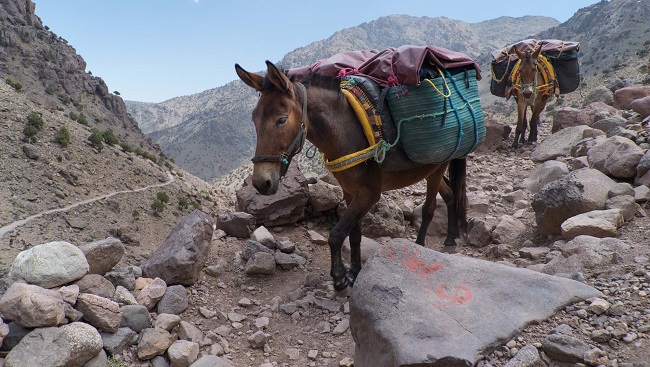Crosses between donkeys and horses are surprisingly prevalent among domesticated animals. Hybrids share a lot of characteristics with their parents, yet there are still some minor distinctions between them.
Names for the offspring of a horse and a donkey might vary according to the characteristics of either parent species. First, we need to figure out what to call the offspring of a male donkey and a female horse.

Varieties of Horse Crossbreeds
The equine family, which includes horses, is a branch of the larger Equidae family. Horses, ponies, donkeys, zebras, and hybrids like mules and hinnies are all considered equines (asses).
Animals that have parents from different species are called hybrids. The species must be genetically close enough to one another to allow for successful hybridization.
To put it another way, a horse and a fish, for instance, are too dissimilar to be a compatible couple. Nonetheless, equines like donkeys and horses can successfully interbreed because they are from the same animal family and share many of the same characteristics.
In most cases, humans are to blame for this form of hybridization. There are very few documented cases of donkeys and horses mating in the wild.
The Act of Hybridization
Crossing a donkey with a horse is the best way to obtain a hybrid equine. Two results can result from such a mating.
Female mules are commonly referred to as mare mules or mollies, while male mules go by the names horse mules, john mules, and jack mules. Similarly to how foals are used for young purebred horses, they also use the term “foal” for young mules. Colts are young male mules while fillies are young female mules.
The male parent is called a sire in the context of horse breeding and pedigree, whereas the female parent is called a dam. To create a mule, a donkey is bred with a horse to produce offspring, also known as a sire and a dam (dam).
Fertilization in Female Mules
Generally speaking, hybrid animals are sterile. This is because the number of chromosomes varies from species to species.
In terms of their genetic make-up, it’s clear that the horse has 64 chromosomes whereas the donkey only has 62. If these two species breed, the resulting offspring will be a mule with 63 chromosomes. Because of the discrepancy in numbers, the resulting hybrid is sterile.
Few instances of a mare mule mating with a purebred horse or donkey and producing mules have been documented. However, such reproduction is extremely rare.


















